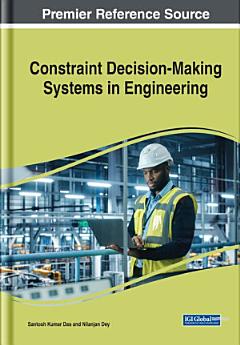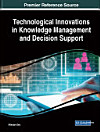Constraint Decision-Making Systems in Engineering
Información sobre este eBook
Constraint Decision-Making Systems in Engineering derives and explores several types of constraint decisions in engineering and focuses on new and innovative conclusions based on problems, robust and efficient systems, and linear and non-linear applications. Covering topics such as fault detection, data mining techniques, and knowledge-based management, this premier reference source is an essential resource for engineers, managers, computer scientists, students and educators of higher education, librarians, researchers, and academicians.
Acerca del autor
Nilanjan Dey, is an Asso. Professor, Department of Computer Science and Engineering, JIS University, Kolkata, India. He is a visiting fellow of the University of Reading, UK. He was an honorary Visiting Scientist at Global Biomedical Technologies Inc., CA, USA (2012-2015). He was awarded his PhD. from Jadavpur Univeristy in 2015. He has authored/edited more than 70 books with Elsevier, Wiley, CRC Press and Springer, and published more than 300 papers. He is the Editor-in-Chief of International Journal of Ambient Computing and Intelligence, IGI Global, Associated Editor of IEEE Access and International Journal of Information Technology, Springer. He is the Series Co-Editor of Springer Tracts in Nature-Inspired Computing, Springer, Series Co-Editor of Advances in Ubiquitous Sensing Applications for Healthcare, Elsevier, Series Editor of Computational Intelligence in Engineering Problem Solving and Intelligent Signal processing and data analysis, CRC. His main research interests include Medical Imaging, Machine learning, Computer Aided Diagnosis, Data Mining etc. He is the Indian Ambassador of International Federation for Information Processing – Young ICT Group and Senior member of IEEE. [Editor]






